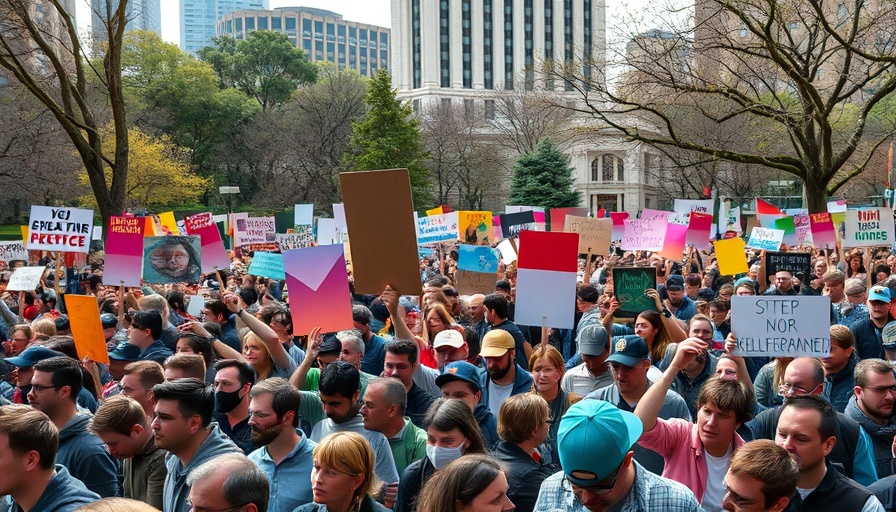
Understanding the Current Climate of Protest in Pennsylvania
In light of increasing tensions surrounding immigration enforcement, Pennsylvania leaders are stepping up to address the rights of protesters while cautioning against the potential pitfalls of anger and violence. This complex landscape reveals the deep-rooted frustrations among the state’s immigrant communities and the broader implications for civil rights amidst heightened government scrutiny.
The Role of Leadership in Safeguarding Rights
At a recent news conference, Philadelphia District Attorney Larry Krasner emphasized his commitment to protecting the rights of law-abiding protesters. He stated, “That is our oath,” highlighting the responsibility of leadership to create a safe space for expression. Krasner's sentiments resonate with many local activists who hope that lawful assembly remains a right defended in the face of aggressive law enforcement tactics.
Emotion vs. Action: A Cautionary Tale
As Imam Kenneth Nuriddin expressed during the conference, the anger felt by immigrant communities stems from a promise long since broken. The phrase inscribed on the Statue of Liberty—“Give me your tired, your poor”—now feels like a hollow invitation rather than a solemn welcome. Nuriddin warns that allowing emotions to drive people towards violence could undermine their objective and lead to severe repercussions. “We can’t allow ourselves to be moved by our emotions, because the anger that is being provoked, there’s a reason for it,” he stated, encouraging protesters to remain focused on their message rather than resorting to aggression.
Historical Context of Protest in America
Protesting as a form of social expression has deep roots in American history. From the Civil Rights Movement to more recent demonstrations against police brutality and immigration policies, protests have served as crucial outlets for marginalized voices. Pennsylvania, in particular, has seen its fair share of such movements, echoing a pursuit for justice that transcends generations.
Future Implications for Civil Rights
Looking ahead, the ongoing protests and the responses they elicit from government officials may shape future legislation and civil rights protections. State authorities, including Governor Josh Shapiro, emphasize the importance of maintaining peace. Shapiro states, “The right to peacefully protest and exercise our First Amendment is a sacred American right — and here in Pennsylvania, we will always protect it.” This emphasizes an intention to uphold justice while strictly addressing any form of civil disorder.
Reassessing Law Enforcement Strategies
As protests are expected to gain momentum, state and local police are ramping up their preparations. Collaboration between different levels of law enforcement aims to ensure both safety and the unconditional right to protest. However, the national conversation surrounding police tactics intensifies scrutiny on how protests are managed. This strategic approach will be vital for upholding civil liberties and avoiding escalated conflicts.
Local Voices and National Movements
The planned, peaceful demonstrations in Philadelphia, coinciding with a large national event in Washington D.C., illustrate a unifying call among local groups and national organizations advocating for various causes, especially against the backdrop of immigration tactics and military involvement in civil affairs. These events symbolize a broader grassroots movement, crucial for both local unity and national attention.
Collective Responsibility in Advocacy
As residents and activists prepare for upcoming protests, the call for accountability is echoed not just by leaders but by the community itself. Collective action fosters a sense of solidarity and responsibility, encouraging diverse individuals to unite under common goals. This collaboration is essential to ensure that the voices of marginalized communities are heard and acted upon.
In a time of such charged environments, the call to protect rights remains paramount. Engaging in peaceful protest, promoting understanding, and committing to dialogue over violence will be crucial in the pursuit of justice.
 Add Row
Add Row  Add
Add 




 Add Row
Add Row  Add
Add 

Write A Comment